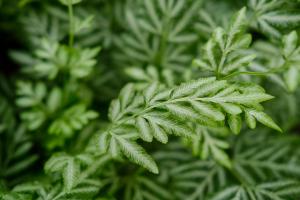Can You Water Plants With Non-Potable Water?
Water is crucial to the growth and survival of plants. Many of us may wonder if using non-potable water, such as rainwater or greywater, is safe for watering plants. In this article, we will explore the benefits and potential risks of using non-potable water to water plants.
The Benefits of Using Non-Potable Water
Using non-potable water to water plants has several benefits. Firstly, it helps to conserve potable water for other household uses, such as drinking and cooking. Secondly, using non-potable water can reduce the amount of wastewater that is generated from a household, which helps to reduce the burden on wastewater treatment facilities. Thirdly, non-potable water can contain valuable nutrients that are beneficial to the growth of plants.
The Risks of Using Non-Potable Water
While there are benefits of using non-potable water to water plants, there are also some potential risks. Non-potable water may contain contaminants that can harm plants, such as pathogens, heavy metals, and chemicals. Some contaminants can also accumulate in the soil over time, which can affect the quality of the soil and the plants that grow in it. Additionally, if non-potable water is not properly treated and filtered, it can pose a health risk to humans and animals that come into contact with it.
Tips for Using Non-Potable Water to Water Plants Safely
If you decide to use non-potable water to water your plants, there are some tips that can help you do it safely. Firstly, collect rainwater in barrels or other containers and use it to water your plants. Rainwater is generally safe for plants and it is easily collected. Secondly, treat greywater before using it to water plants. Greywater is wastewater from household activities, such as laundry or dishwashing. It can contain contaminants that are harmful to plants, so it is important to treat it before using it for irrigation. Thirdly, avoid using non-potable water that has come into contact with sewage or hazardous chemicals. This water can contain high levels of contaminants that can ultimately harm your plants and the environment.
Conclusion
Using non-potable water to water plants can be a great way to conserve potable water and reduce the amount of wastewater generated by households. However, it is important to be aware of the potential risks of using non-potable water and to take steps to mitigate these risks. By following the tips outlined in this article, you can safely use non-potable water to water your plants and help to protect the environment.

 how many times do yo...
how many times do yo... how many planted tre...
how many planted tre... how many pine trees ...
how many pine trees ... how many pecan trees...
how many pecan trees... how many plants comp...
how many plants comp... how many plants can ...
how many plants can ... how many plants and ...
how many plants and ... how many pepper plan...
how many pepper plan...
































